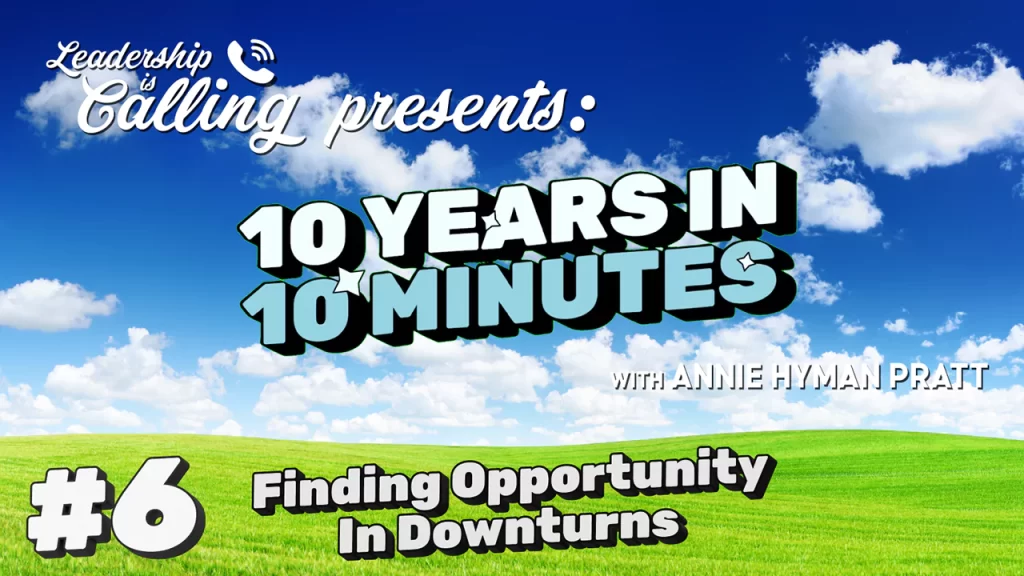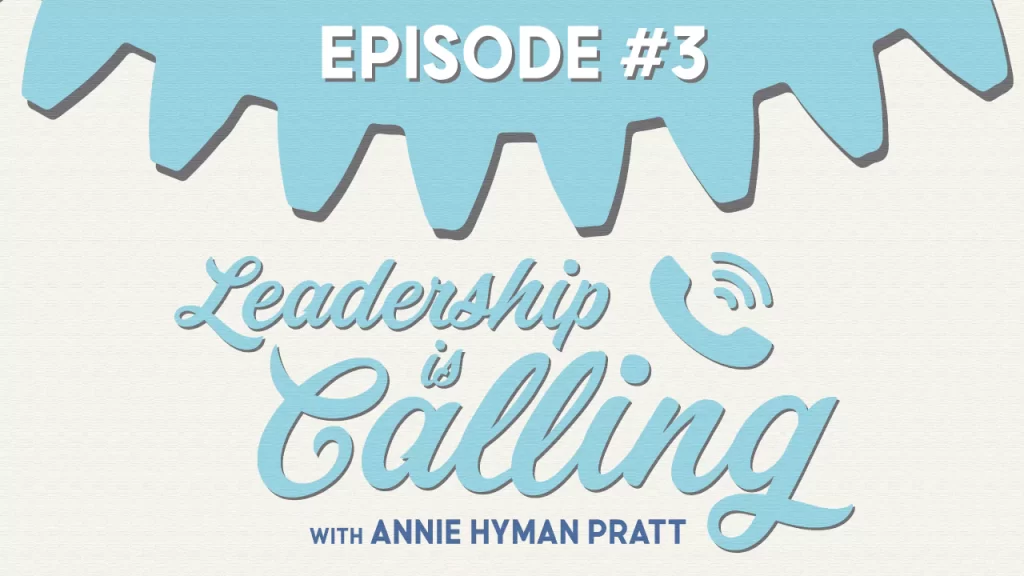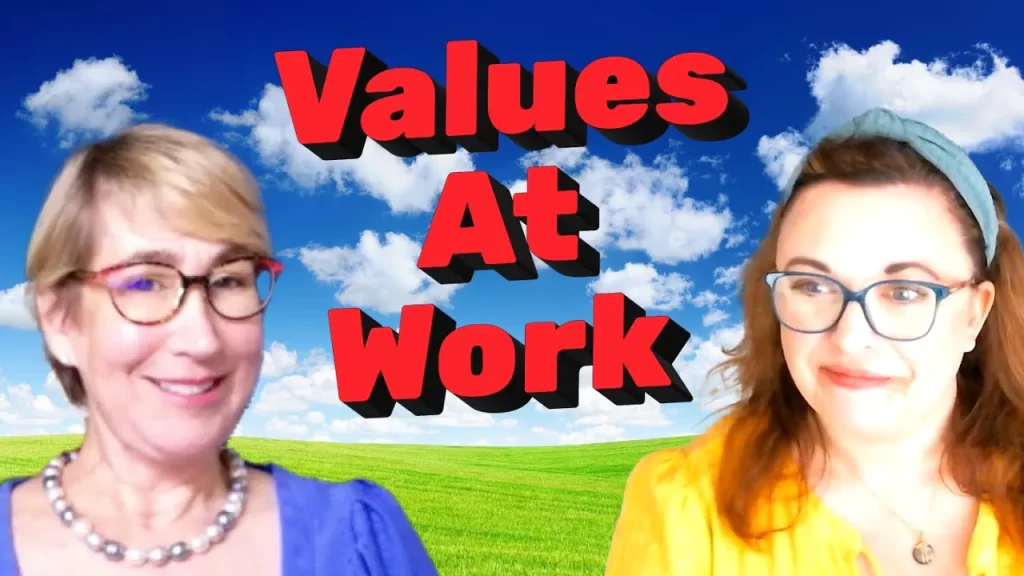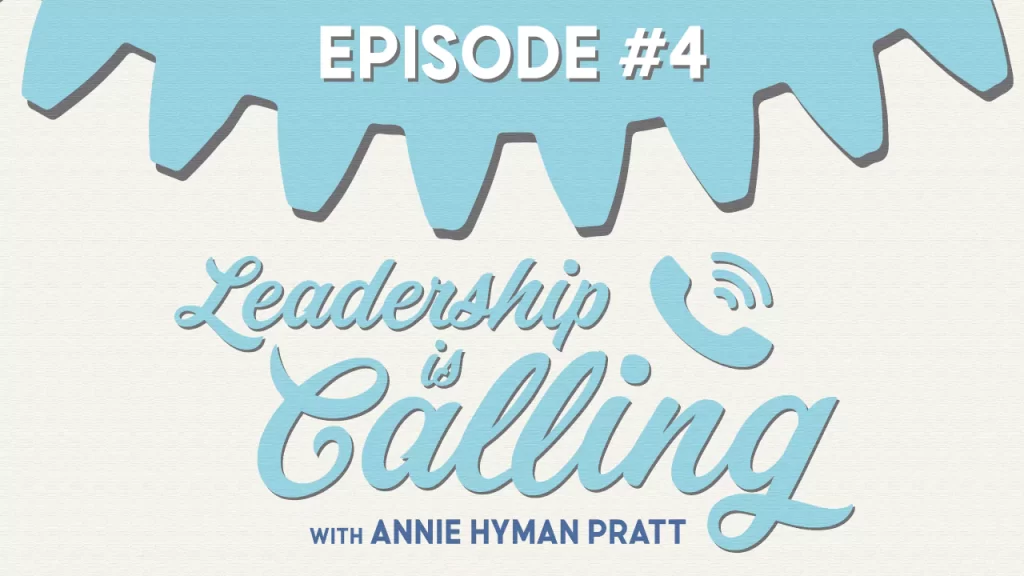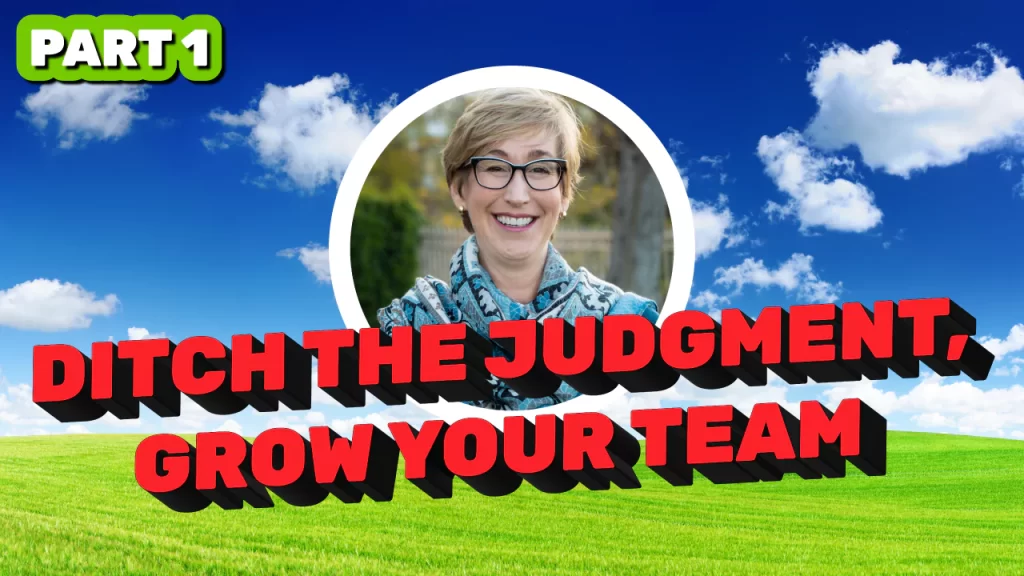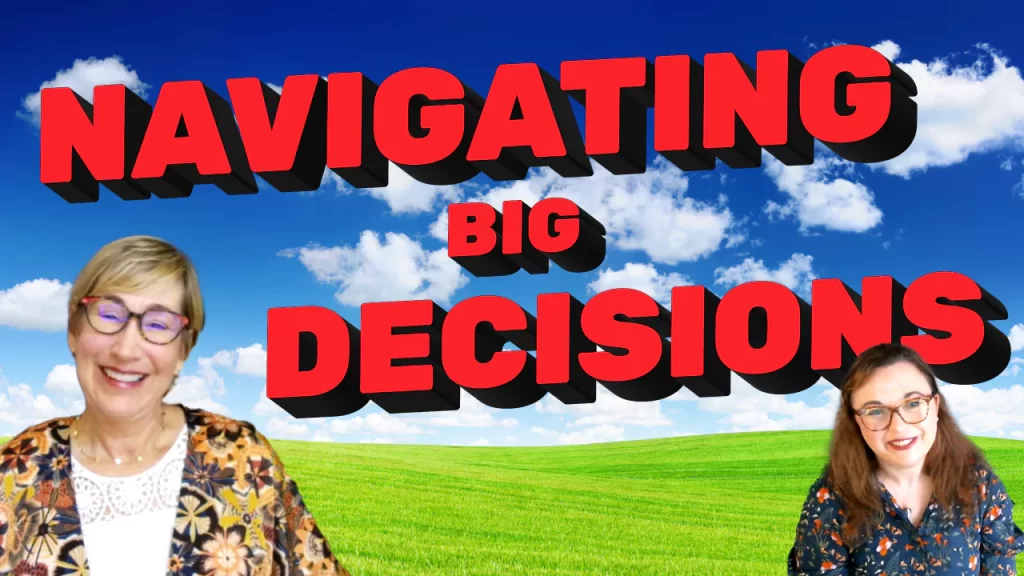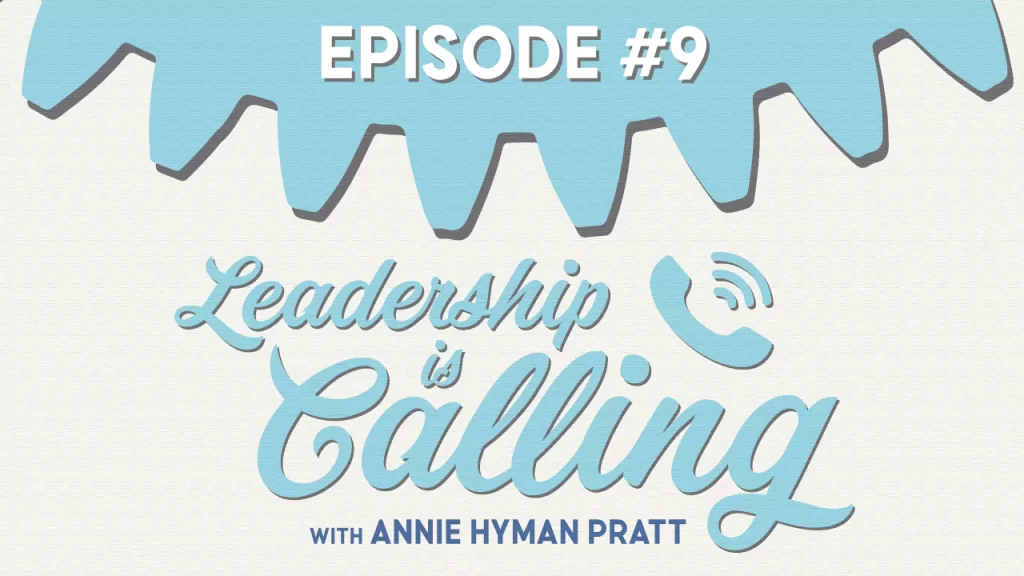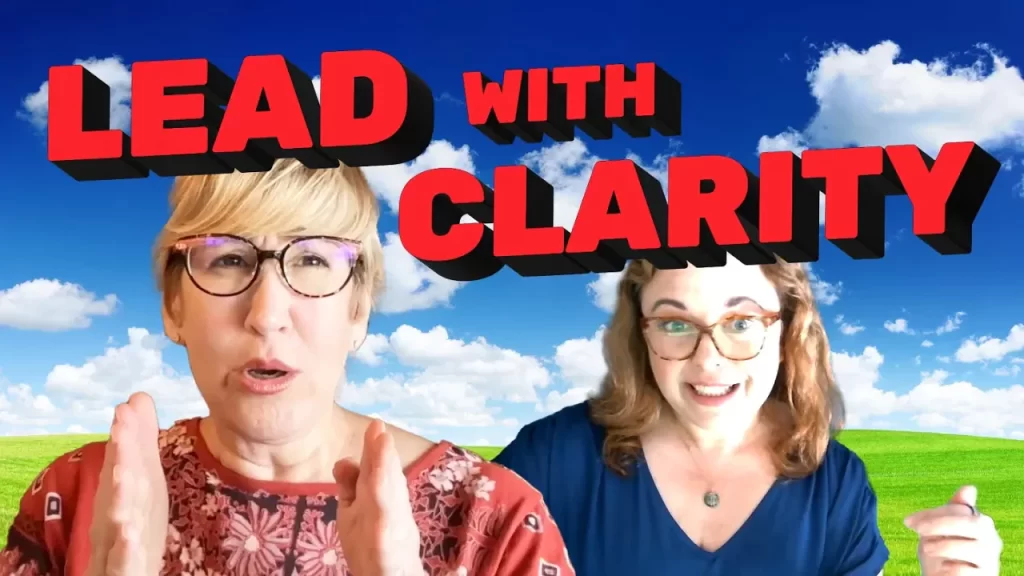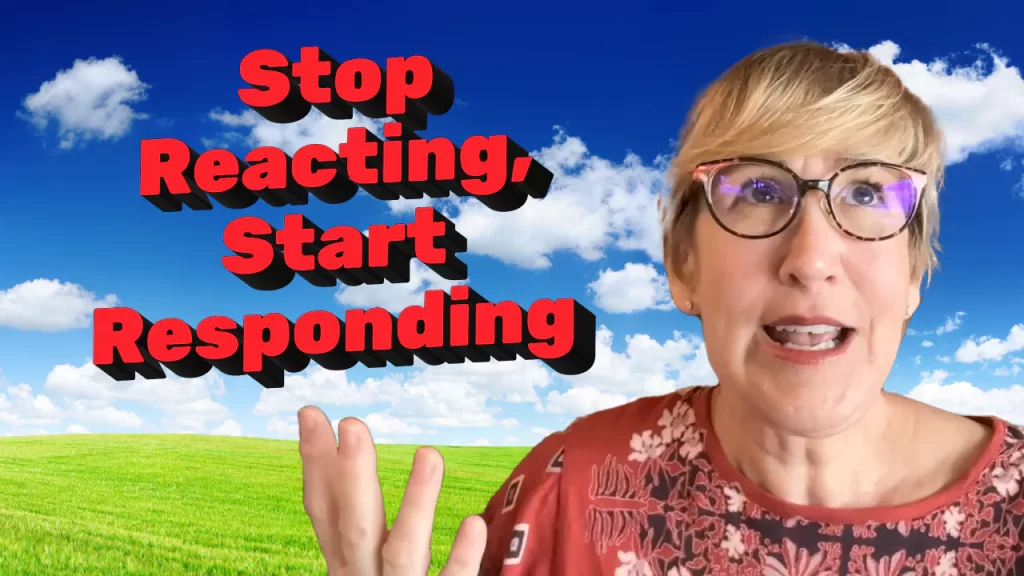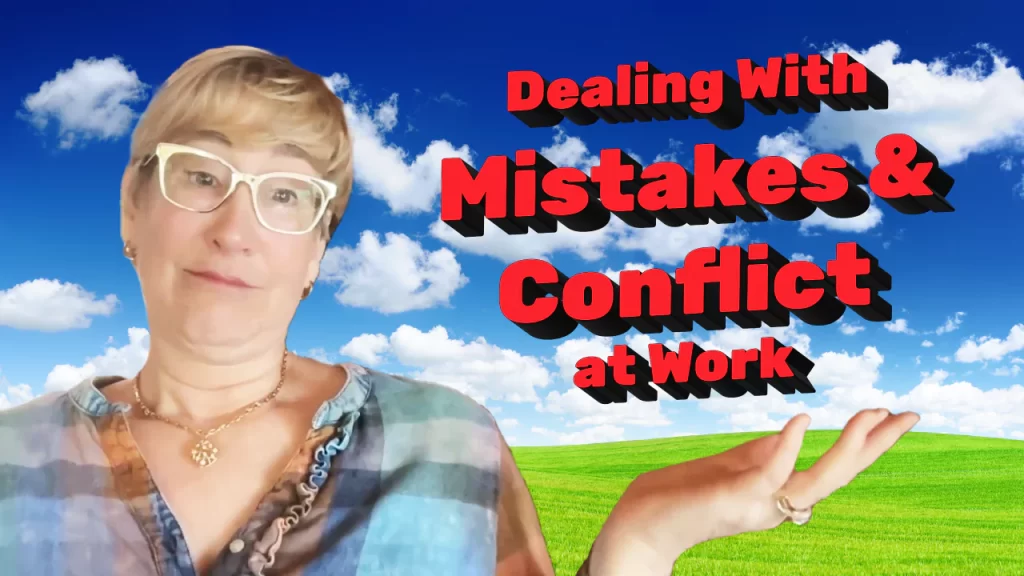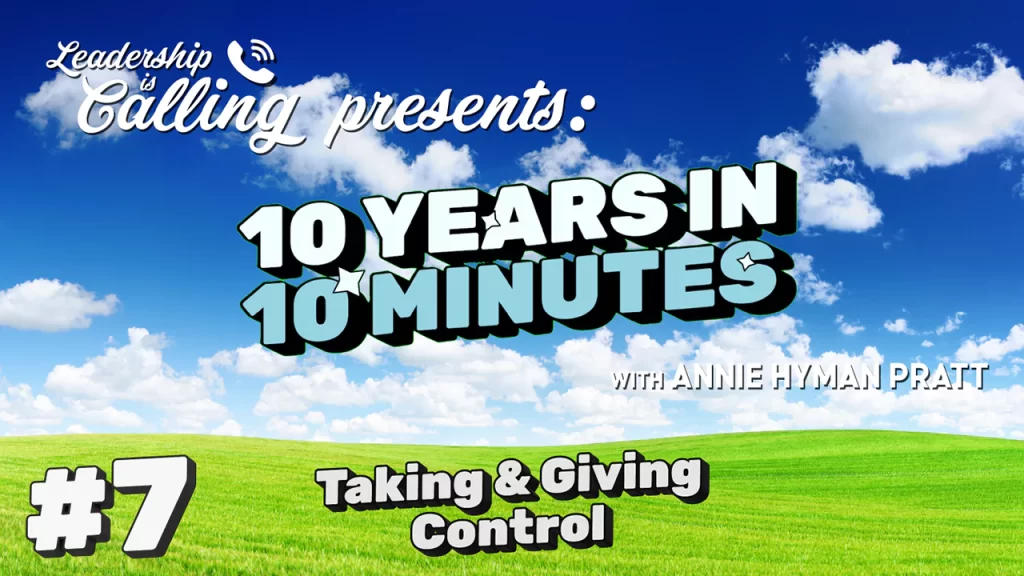Episode #02: Self-Leadership & Emotional Regulation
Leadership is Calling Episode #2
Annie Hyman Pratt
- Description
- Transcript
Self-Leadership & Emotional Regulation
“Think of building endurance like training for a sport – you practice by managing greater challenges.” -Annie
In this podcast episode, Executive Consultant Annie Hyman Pratt explains that self-leadership is our capacity to act intentionally even when under stress or pressure. She notes that we spend more time reacting emotionally than we realize. Learning techniques to regulate our emotions allows us to get back to intentional thinking. Building endurance is like training for a sport – it takes practice managing greater challenges. Strengthening self-leadership helps leaders become more effective and productive.
Learn what it takes to behave intentionally under stress, pressure, and challenge and…
- Why eye rolling in a meeting and firing off an angry email never lead to anything productive
- How to grow your ability to handle stress and challenge without reacting from a self-protective place
- Ways to change your state of being to help regulate your emotions
Key Points
- Self-leadership is our ability to behave intentionally even under stress and pressure.
- We spend more time reacting emotionally than we realize.
- Learning to regulate our emotions allows us to regain intentional thinking.
- Building endurance to handle stress is like training for a sport.
- Practicing self-leadership helps us become more effective leaders.
Related Resources
Leadership Skills: The People Part
Leadership Development Articles: Expanding The Zone of Emotional Endurance | How to Be a Better Leader in a Changing World
Downloadable Leadership Tool: The Secret Recipe to Reverse Burnout and build Emotional Endurance for You and Your Team

Auto-Generated Transcript – unedited version
Self-Leadership & Emotional Regulation
This is Leadership is Calling, a podcast that brings you leadership and business tips anchored in the people part. I’m Annie Hyman Pratt, CEO and founder of Leading Edge Teams.
Hi everyone, I’m Annie Hyman Pratt. I’m the founder of Leading Edge Teams, and today I’m going to talk about self leadership, self-leadership and emotional regulation, which is basically our ability to behave intentionally, to you know, do what we intend to do even under stress, pressure and challenge. So it’s obviously pretty simple to do what we want to do when we’re not stressed, but as soon as stress or challenge or you know, as soon as we kind of detect some threats, then it actually becomes much harder to hang on to our self-leadership, to our intentional brain. In fact, let me backup for a moment and talk about what really drives human behavior, because we tend to think that we’re in charge of our actions, uh, all day every day, and the truth is we’re not. We are in charge of our behavior and actions just kind of a small fraction of the day.
Most of the day we spend in habit, in habitual behaviors, the kinds of things that we do day in and day out that we don’t really need to think about anymore, right? Like getting up in the morning and you know, getting dressed and brushing our teeth and getting ready for the day like nobody needs to expend a ton of energy thinking energy, especially doing that. We get ourselves to work, we open any email, we get the computer on, we know, we do all these things that don’t require a lot of thinking. Then we certainly spend a good portion of our day, especially when we’re doing work or when we’re doing things that need our brain power, right? Where we need to decide what we are going to do with this right now, or we maybe need to do some problem solving or create something new, that’s where we’re going to really use our intentional brains and and and we use them throughout the day.
For example, in a meeting, like let’s say you’re in a meeting and it’s with a bunch of higher-ups, maybe some owners of the company, or you know, or or just you know lots of stakeholders and maybe during a stressful time on a project or something like that. In those kinds of meetings, most everybody will be very intentional, they’ll be very careful about what they say, they’ll be thinking about how do I want to respond to this before they respond. Okay, so we spend a good part of our day on that, and we tend to think that that’s how we spend most of our day.
Okay, but then there’s a third way that we spend a lot of time that we don’t really realize, and that is in emotional reactivity. So we are hardwired to detect threats. We have this amygdala, it’s a threat detection machine, it sits on top of our brain stem, on top of our spinal cord here, and it receives information from all our senses before we process it here in the frontal lobe. So it’s more of a threat detecting, non-problem solving, non-thinking part. Its job is to react, its job is to sense danger and react before you need to think about it, because thinking is slow, reacting is fast. And if we are about to get eaten by a tiger, we can’t be thinking “how fast does that tiger really move?” Right? We can’t be wondering “is is he gonna, you know, is he really after me or is he not after me?” Right now like us, we’re wired to react.
The problem today is that we have, we’re wired for these immediate physical threats, and in today’s day and age we have very few of those in our society. We have many, many psychological long-term threats, not immediate physical ones, but our system can’t distinguish. So we feel a threat, something like a boss rolling their eyes when we’re talking in a meeting, that feels that the threat detection mechanism is the same as a tiger charging us, it’s not different. And so when we, when those hit, we are wired to go into reactivity. So meaning that when somebody, you know if I see my boss roll their eyes I will usually react in the way that is most typical for me when I’m under stress and pressure.
Okay, so for me I probably will shut down, I will totally lose my train of thought, I will shrink in front of everybody under the perceived criticism, right? Okay, if it were my husband he would probably get pretty vocal, maybe defensive, maybe you know, maybe a bit attacking, like you know calling the eye rolling out and maybe starting an argument. Okay, neither of those reactions is helpful at all, they both are, they’re different you know ends of the reactive spectrbut neither one of them actually help us move the business forward, move the thing that we’re actually talking about in the meeting forward. All of that reactivity is a distraction, right? It’s like, it’s a waste of time and the worst thing about it is that it takes our thinking away from us.
So when we’re in that kind of emotional reactivity, the blood that we have flowing to this front part of our brain which has all the creativity and the problem solving, the decision making and all that, it takes the blood away from this and it sends it to our large muscles like our thighs. So when you, for example when you receive us, maybe a snarky email or something that you’re perceiving as you know, blaming you or critical or snarking in some way. Okay, you are sitting in your chair maybe fuming, if you’re me at least you’re fuming, and even though I’m sitting in my chair all my blood is in my thighs, like you know maybe some of it’s in my hands as I bang on the keyboard, and that is not helping anything. It’s totally taking me away from being productive at all and causing more problems, right? It’s like the opposite of what I need to do in today’s day and age to be effective, to be effective in business, to be an effective leader, to be effective in my life frankly.
And so what we need to learn how to do is regulate those emotions, meaning that when they hit, that I’m not captive to them, I’m not driven by my emotions. And if you’re human you know what that feels like, it’s like, you know that moment where if you could have done something different you would have but you can’t, right? It’s like a moment of maybe getting into an argument with your spouse and throwing an insult out there, right? And then the next day you’re like “Ah, I shouldn’t have said that, now I just made it 10 times worse!” Right? So we want to be able to, when those emotions hit, when that adrenaline starts to happen, when we feel our biology shift, that we have the ability to take some deep breaths, that we have the ability to walk around the block, that we have the ability to quickly pause, calm ourselves enough that we could take an action we intent.
So that means, you know, instead of responding in kind, to an insult, that means that we would take a breath and maybe call for a little time out. Maybe we would take a breath and go back to talking about “Hey wait a minute, you know what, I feel the tension rising, let’s talk about what we were, what this meeting was all about in the first place,” for example. But to get that ability for our own self-leadership, meaning do what we intend to, to get that ability, we need to be able to regulate those emotions, not have them take over. And the key here is that we can’t have them take over, and we want to build the endurance so that as we grow in our business, that we can handle stress and challenge and get triggered fewer and fewer times, right? Or when we do get triggered, we get ourselves back very quickly.
Think of it very much like any kind of sport, right? So uh, maybe you know a runner and you’re planning to run a marathon. Alright, so the thing about running, like anything else we’re going to master, is probably you can’t do, you know, one week of practice and then run an entire marathon. I know I don’t know anybody that could do that. And so what you’re going to be doing is building up your endurance, right? You start with a mile or two and then you do that for a couple weeks and you increase another mile and then increase another mile. And you are going to be building your endurance over time, but the way you’re building it is by adding on to the challenge.
So what we’re looking for is for people not only to be learning self-leadership but to be growing their ability to handle stress and challenge without reacting from that self-protective place. The self-protective place is the place where you go into avoidance, go into pleasing, go into blame, judgment, criticism, self-blame, denial, hiding, that’s personal favorite, self-defense mechanism, right? It’s kind of that, that shrinking away and those just, they destroy our productivity, they destroy our ability to do good work. And so what we’re wanting is for everybody to build their emotional endurance and the best way you build your emotional endurance is by learning a few techniques, and learning what works for you. Like I said, it’s going to be a change of state, meaning do you need to take deep breaths? Do you need to stand up and get a cup of coffee? Do you need to go around the block? Maybe you play with your dog, maybe you listen to a song you love, right? It’s maybe you jump around and dance, it’s like whatever is going to work for you to change your estate and get your emotions regulated so that you can go back to acting intentionally, you can get your thinking brain back.
And we want you to get better and better at that, which means you got to practice, right? You’ve got to be able to recognize when your emotions are hitting and be able to have that pause inside yourself of, for me inside myself it kind of sounds like “Oh there I go again feeling you know feeling tension, there I go again wanting to fall into a hole in the floor.” Right there I go again you know wishing I could come up with a snarky remark, and because I, I don’t think well at all under pressure, yeah. So anyhow, we want, you know, we want everybody to learn for themselves what their triggers are, how to get themselves regulated so you can handle more and more stress and challenge. Which business has, business has, but uh, like a sport it’s you know, becoming a championship team, really practicing a lot is worth it because when you win you get to win big. That’s what I wanted to talk about today for self leadership.
Be sure to like, comment and subscribe to Leadership is Calling.
To learn more about this episode’s topic, pick up a copy of my book The People Part.
Want to learn more about how to uplevel your leadership skills and create a collaborative team that helps you drive results? Go to LeadingEdgeTeams.com/schedule to learn more about working with us and to schedule a call.





